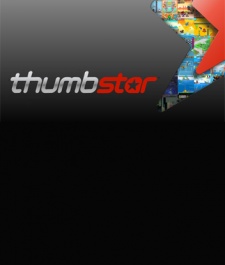As strong as Nokia's connection with the feature phone market might be traditionally, the Finnish firm's decision to drop Symbian in favour of Microsoft's Windows Phone may have had an impact on this relationship.
According to UK mobile publisher Thumbstar, Android is the OS currently leading the line when it comes to offering both feature phone users and developers a bridge to the smartphone market.
Nokia's move to launch low-price Lumia handsets may well signal an intent to supersede Google's platform, but there's one thing standing in its way.
Unlike Android, the Windows Phone platform isn't open.
We caught up with Thumbstar COO Martin Kitney and business development director for Latin America Tom Viswat for their take on the current barrier's to entry standing in the way of Nokia's jump on Java.
Pocket Gamer: Nokia's Lumia 610 is the cheapest Windows Phone it's released to date. Do you think Nokia has any chance in making inroads on the feature phones market with such a device?
Tom Viswat: I understand pricing levels will be at $225 or 170 or so. Right now prices for a touchscreen Android device with acceptable quality can be bought straight from the factory at around $90.
Shipping , import duties, etc. will increase price but still makes end user price for an Android touch screen handset lower than a Nokia Lumia.
Yes, Nokia will sell more handsets with a lower price but since the Windows Phone ecosystem is a closed one - no side loading via other than their own App Store possible - like Apple App Store it lacks support from local operators who will have their own App Stores selling Android and Java content.
Further independent retailers in fragmented distribution markets sell mainly a wide array of Chinese Java and Android phones as they can make good margins. It will be a hell of a job getting into these independent retail stores owned and steered daily by just one person.
Nokia has also suggested it's looking to release sub 100 Windows Phones to take on Android in the near future. Will this make any difference?
TV: Yes, provided distribution into independent retailers works and available Apps reach same levels as Android an Apple App Stores. Opening up their ecosystem will be helpful as well.
What are the major differences between the market for games on smartphones and the Java market? Are the consumer groups merging?
TV: Free Google Play apps can be downloaded via wifi and mobile internet. The existence of pre-installed Java app stores is lacking, so most content in emerging markets is either pre-installed or distributed via PSMS procedures.
They will merge if operators manage to create popular App Stores for both Java and Android. If they fail, Android will replace Java in the next 2-5 years.
Martin Kitney: I agree with Tom. We are finding that the Android market is growing, although in places like South America Java is still the leader. Smartphone devices are becoming cheaper and more accessible, and this may also drive the shift towards Android as we have seen in Europe.
Which smartphone platform do you think is making the best job of appealing to feature phone owners as things stand?
MK: With its various price points Android has great appeal to a vast array of users. We are now seeing some good 'low end devices' that make them available to all, and I'm sure more will follow over the next 12 months.
Thanks to Tom and Martin for their time.
You can find out more about Thumbstar on the firm's website.
Android better placed for assault on Java than Nokia, claims Thumbstar
Windows Phone needs to open up




















